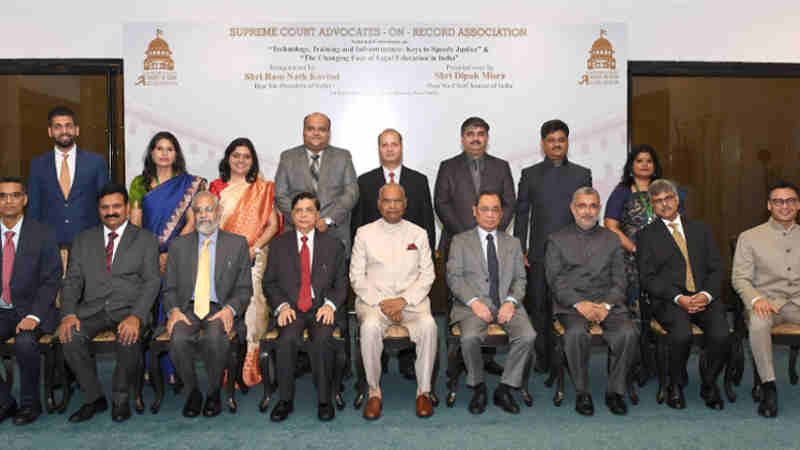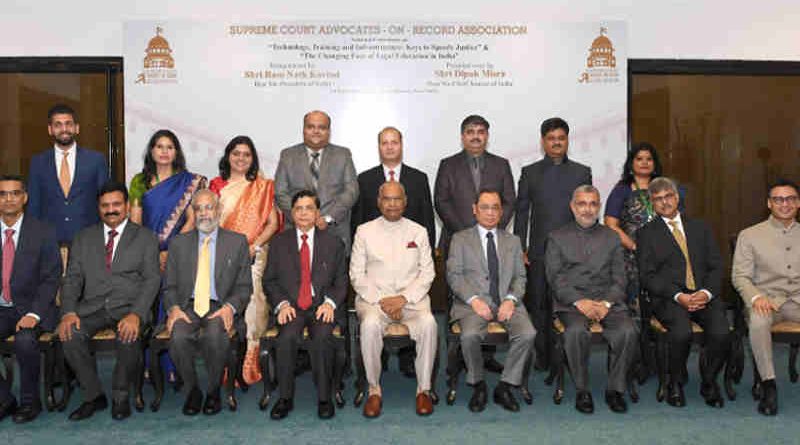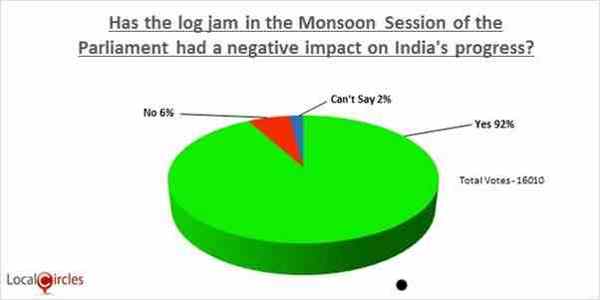President Expresses Concern over 33 Million Pending Cases in Courts

President Expresses Concern over 33 Million Pending Cases in Courts
The President of India, Ram Nath Kovind, inaugurated the National Conference being organized by the Supreme Court Advocates on Record Association in New Delhi on Saturday (September 1, 2018).
Speaking on the occasion, the President said that India’s judiciary is respected across the world as an upholder of justice for the defenseless.
It is also true that our judges are overburdened by the sheer volume of cases. As a consequence, the Indian legal system is marked by long delays. He noted that there is a backlog of 3.3 crore cases in various courts of the country. Of these, 2.84 crore cases are in the subordinate courts. Another 43 lakh are in the High Courts and about 58,000 in the Supreme Court.
[ Chief Justice Dipak Misra Launches Applications for Digital Courts ]
The President said that there are many reasons for such delays. There are infrastructure gaps and considerable vacancies, particularly in subordinate courts. There is a culture of seeking adjournments as a norm rather than an exception.
New thinking is gradually taking place on frequent adjournments. He noted that the judiciary is making sincere efforts to curb this practice. He expressed confidence that the entire legal fraternity will resolve not to seek adjournments except in absolutely unavoidable circumstances.
The President said that demands from our advocates and legal professionals have changed dramatically in recent decades. As the Indian economy has opened up, business and trade law and technology law have come to acquire a new salience and specialization. The study of these has added luster to our legal education.
[ Delhi Govt Allows Massive Corruption in Housing Societies. Case: Bhagwati CGHS ]
The President said that the traditional law faculties in public universities provide the backbone of the legal fraternity in India. Their rejuvenation, including access to greater funding from private and innovative sources, should be a common endeavor.
When it comes to private law schools of a certain stature, the Bar Council of India could consider providing greater autonomy – perhaps recognizing them in the manner of “institutes of eminence”.
Photo courtesy: Press Information Bureau





